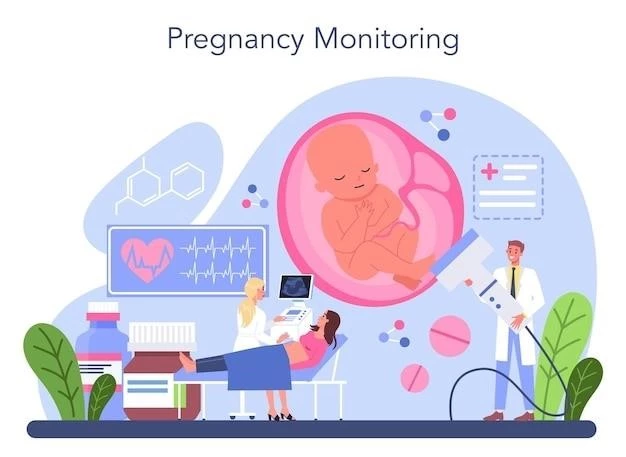Introduction
Transplacental infections refer to the transmission of an infection from a mother to the fetus through the placenta. These infections vary in type and severity, impacting fetal development. For instance, infections like COVID-19 caused by SARS-CoV-2 pose a significant risk to pregnant women and their babies.
Definition of Transplacental Infections
Transplacental infections are those that pass from the mother to the fetus through the placenta. The type and severity of symptoms can vary based on the infection type and fetal stage. COVID-19 caused by SARS-CoV-2 is one such alarming example, posing risks to pregnant women and infants.

Impact of Transplacental Infections
The impact of transplacental infections on pregnancy can be severe, especially with infections like COVID-19 caused by SARS-CoV-2. Pregnant individuals infected with SARS-CoV-2 face risks such as premature delivery and stillbirth, highlighting the critical nature of these infections during pregnancy.
COVID-19 and Pregnancy
The global pandemic of COVID-19, caused by the novel SARS-CoV-2 virus, has raised significant concerns for pregnant women. Those infected face heightened risks during pregnancy, including potential complications such as premature delivery and stillbirth.
Severe Acute Respiratory Syndrome Coronavirus 2 (SARS-CoV-2)
The outbreak of the coronavirus disease 2019 (COVID-19), caused by the novel severe acute respiratory syndrome coronavirus 2 (SARS-CoV-2) virus, poses significant risks to pregnant women. Infections during pregnancy can lead to severe complications, such as premature delivery and stillbirth, emphasizing the critical impact of this virus on maternal and fetal health.
Mechanisms of Transplacental Transmission
Transplacental transmission occurs via different routes like transneural migration or direct placental infection. Understanding these mechanisms is crucial to comprehend how infections travel from mother to fetus, impacting pregnancy outcomes.
Possible Routes of Vertical Infection
Intrauterine infection can occur through transplacental or ascending routes, impacting fetal health; Ascending infections can facilitate the transfer of maternal immunoglobulins, potentially influencing the severity of the infection. Understanding these mechanisms is crucial for effective management during pregnancy.
Severe Acute Respiratory Syndrome Coronavirus 2 (SARS-CoV-2)
The outbreak of the coronavirus disease 2019 (COVID-19) pandemic, caused by the novel severe acute respiratory syndrome coronavirus 2 (SARS-CoV-2), has resulted in a global public health crisis. Pregnant individuals infected with SARS-CoV-2 face heightened risks, including potential complications such as premature delivery and stillbirth, emphasizing the importance of understanding and preventing transplacental infections.

Examples of Transplacental Infections
Examples of transplacental infections include transmission of the rabies virus and flaviviruses from mother to fetus. Understanding these instances sheds light on the complexities of vertical infection pathways and their impact on maternal and fetal health.
Rabies Virus Transmission
The transmission of rabies virus through transplacental routes remains an area of interest. While evidence from experimental infections in various species supports transplacental transmission, no documented cases in humans exist thus far. Understanding the potential for transplacental transmission of rabies virus is essential for effective prevention and management strategies.
Flaviviruses Transmission
Flaviviruses are known to be transmitted from mother to fetus through transplacental routes. Detection methods include examining fetal tissue, amniotic fluid, and cord blood for virus presence or specific antibodies. Understanding transplacental transmission of flaviviruses is crucial for effective prevention and management strategies.
Diagnosis and Challenges
Challenges in diagnosing transplacental infections include the difficulty of isolating SARS-CoV-2 in perinatal samples and the need for investigative tools to confirm maternal-fetal infections accurately. Understanding these challenges is vital for effective management during pregnancy.
Challenges in Isolating SARS-CoV-2 in Perinatal Samples
Isolating SARS-CoV-2 in perinatal samples poses challenges, hindering definitive proof of transplacental infection. Investigative tools are crucial for accurate confirmation of maternal-fetal infections, addressing gaps in diagnosis during pregnancy.
Investigative Tools for Maternal-Fetal Infection Confirmation
Confirmation of maternal-fetal infections can be challenging due to the complexity of isolating pathogens like SARS-CoV-2. Utilizing investigative tools such as comprehensive virological and pathological analyses is crucial to accurately confirm transplacental infections, ensuring appropriate management and care for both the mother and the fetus.
Prevention and Treatment
Protective mechanisms of the placental barrier play a crucial role in preventing transplacental infections. Understanding the role of immunomodulatory defense pathways is essential in developing effective strategies for preventing and managing infections during pregnancy.
Protective Mechanisms of the Placental Barrier
The placental barrier plays a crucial role in preventing transplacental infections by providing a protective shield against pathogens. This barrier acts as a defense mechanism, regulating the passage of harmful agents while facilitating essential nutrient transfer to support fetal development.
Role of Immunomodulatory Defense Pathways
Immunomodulatory defense pathways within the placenta play a crucial role in protecting against transplacental infections. These pathways help regulate immune responses and combat potential pathogens that try to breach the placental barrier, thereby safeguarding the well-being of the developing fetus;
